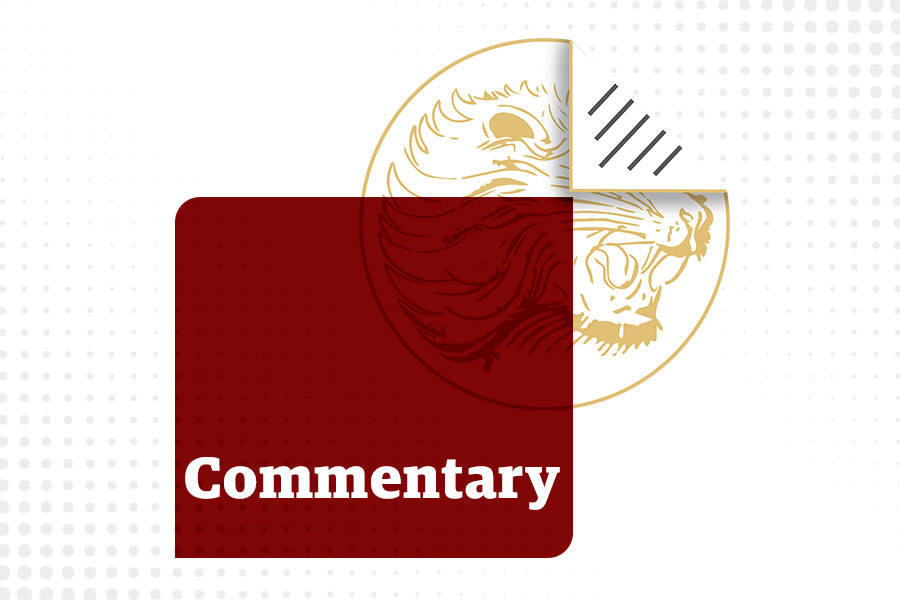
Commentaries | Jul 29,2023
Jun 15 , 2019
By Eden Sahle
What we all Ethiopians have in common is living in fear of not knowing what is coming from our leaders and how our routine life can suddenly be disrupted due to government decisions. Often, I find myself thinking how much the public has been neglected and disrespected by authorities. Whether we like it or not, it’s the action that speaks louder, and we do not have competent institutions that can think out side the box.
Institutions feel like it’s their right to prevent the public from getting services that we pay for, to only receive poor service and even be denied of it at any time. Institutions are not convinced that they owe the public an explanation for what they do that is seriously affecting the public’s life and business.
I was in Poland a few months back. It is one of the growing economies of Europe. Their culture and way of life are just fascinating. Most importantly, how their government treats society impressed me. I was told of a story by the locals that the government paved a new street line for women who wear high hills because the women complained that it’s difficult for them to walk on the rough stones in hills. I was amazed by the incredible consideration of their government. This admirable action illustrates how far some governments go to meet their public’s need and how far ours deny us from the essential services.
I quickly imagined how our lives in Ethiopia could get a lot easier if those in power try to consider our basic needs and work hard for it. This is not being too demanding. It is just reminding those in positions of authority that the only reason they are in office is to serve the public.
They are there to serve and protect the public interest as well as not doing any harm. Sustainable and quality service does not seem to be a solvable equation in Ethiopia. The public dissatisfaction does not ring alarm on institutions and leaders.
What is strange is how meeting the public need, which should have been the utmost necessary component of leadership is entirely and consistently disregarded. The responsibility of providing efficient and uninterrupted service is highly misunderstood, and institutions miss the point of respecting customers.
Being answerable to the public in all its forms involves integrity and competency not just to deliver the meagre service but also to improve it. The endless utility service cuts which we are subjected to often proves how institutions are comfortable in providing inefficient service to the public. It’s regrettable to see these problems never end in Ethiopia.
Unless we start implementing solutions now forever perfecting improvement plans will not amount anything. Unfortunately, this is not something the leadership in Ethiopia finds simple.
Great leadership is about taking responsibility and action. It is staggeringly scary how we never see anyone assume responsibility and take meaningful action to solve these problems.
Inefficient institutions are so used to denying and blaming something else for their problems for the simple reason that it’s easy and they can get away with it while solving problems is hard. We all should be sad about the situation in Ethiopia because what doesn’t make us angry, we will never change.
The more we avoid problems and fail to confront our actions, we will inevitably be stuck in a vicious circle. The justification we are told for all the inefficiencies and unprofessionalism that is rife in Ethiopia is so common it does not mean anything.
Solutions grow from struggles and dedication. Solving Ethiopia’s massive problem doesn’t just sprout out of the ground like grass. It requires adequate planning and execution. We all want to see a developed Ethiopia. But that will not happen unless we come up with better ideas. Leaders need to listen to the public’s pain. Most of the time, the public has a solution as the primary victim of inefficient leadership.
I once came across a public gathering in Kenya where the entire public, literate and illtreat, were called to contribute ideas and solutions during policy formation. It’s so inspiring to observe this commendable practice where the public become the solution provider identifying where the leadership is failing. The practice of working together from the bottom up seems to bring solutions and set priorities.
Unless we tackle and eradicate the conventional cultural narratives of accepting and living by failures, we will continue to merely exist. We need to work through the process of improvement because it does not help to just dream about results which may never come doing things the usual way.
Our leaders have not transformed themselves. That is why they are caught in inactions. Leaders who passionately work for solutions are the ones who can take Ethiopia out from the never-ending poverty. Leaders who work through the stresses and persistence of hard work are ultimately the ones who will make it. These are the most simple and essential component of leadership our government and institutions must uphold.
PUBLISHED ON
Jun 15,2019 [ VOL
20 , NO
998]

Commentaries | Jul 29,2023

Fortune News | Nov 14,2019

My Opinion | Aug 22,2020

Life Matters | Jun 17,2023

Verbatim | Nov 23,2019

Fineline |

Sunday with Eden | Jan 12,2019

Films Review | Jan 07,2022

Editorial | Sep 10,2022

Commentaries | Apr 22,2023

Photo Gallery | 170113 Views | May 06,2019

Photo Gallery | 160360 Views | Apr 26,2019

Photo Gallery | 149968 Views | Oct 06,2021

My Opinion | 136226 Views | Aug 14,2021





Dec 22 , 2024 . By TIZITA SHEWAFERAW
Charged with transforming colossal state-owned enterprises into modern and competitiv...

Aug 18 , 2024 . By AKSAH ITALO
Although predictable Yonas Zerihun's job in the ride-hailing service is not immune to...

Jul 28 , 2024 . By TIZITA SHEWAFERAW
Unhabitual, perhaps too many, Samuel Gebreyohannes, 38, used to occasionally enjoy a couple of beers at breakfast. However, he recently swit...

Jul 13 , 2024 . By AKSAH ITALO
Investors who rely on tractors, trucks, and field vehicles for commuting, transporting commodities, and f...

Oct 4 , 2025
Eyob Tekalegn (PhD) had been in the Governor's chair for only weeks when, on Septembe...

Sep 27 , 2025
Four years into an experiment with “shock therapy” in education, the national moo...

Sep 20 , 2025
Getachew Reda's return to the national stage was always going to stir attention. Once...

Sep 13 , 2025
At its launch in Nairobi two years ago, the Africa Climate Summit was billed as the f...

Oct 5 , 2025 . By NAHOM AYELE
In Meqelle, a name long associated with industrial grit and regional pride is undergo...

Oct 5 , 2025 . By BEZAWIT HULUAGER
The federal government is set to roll out a new "motor vehicle circulation tax" in th...

Oct 5 , 2025 . By NAHOM AYELE
The Bank of Abyssinia is wrestling with the loss of a prime plot of land once leased...

Oct 5 , 2025 . By BEZAWIT HULUAGER
The Customs Commission has introduced new tariffs on a wide range of imported goods i...